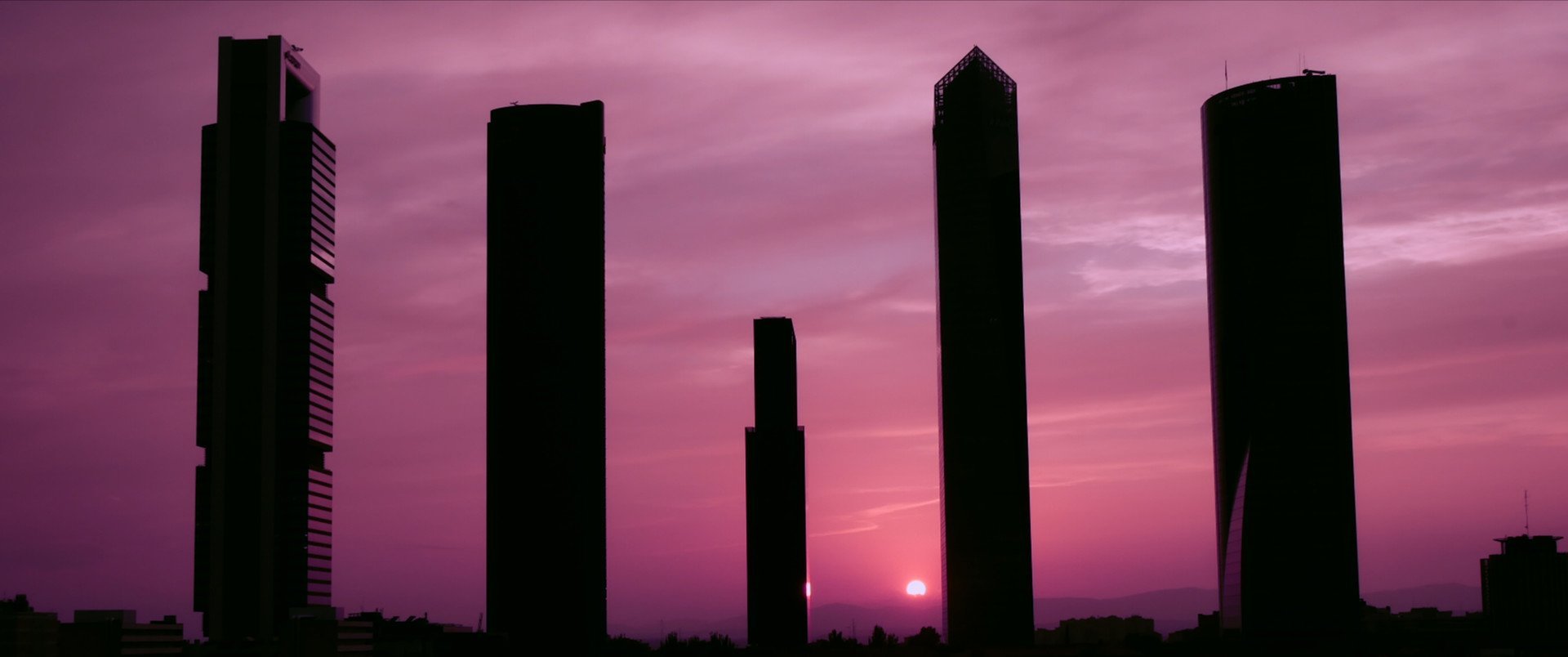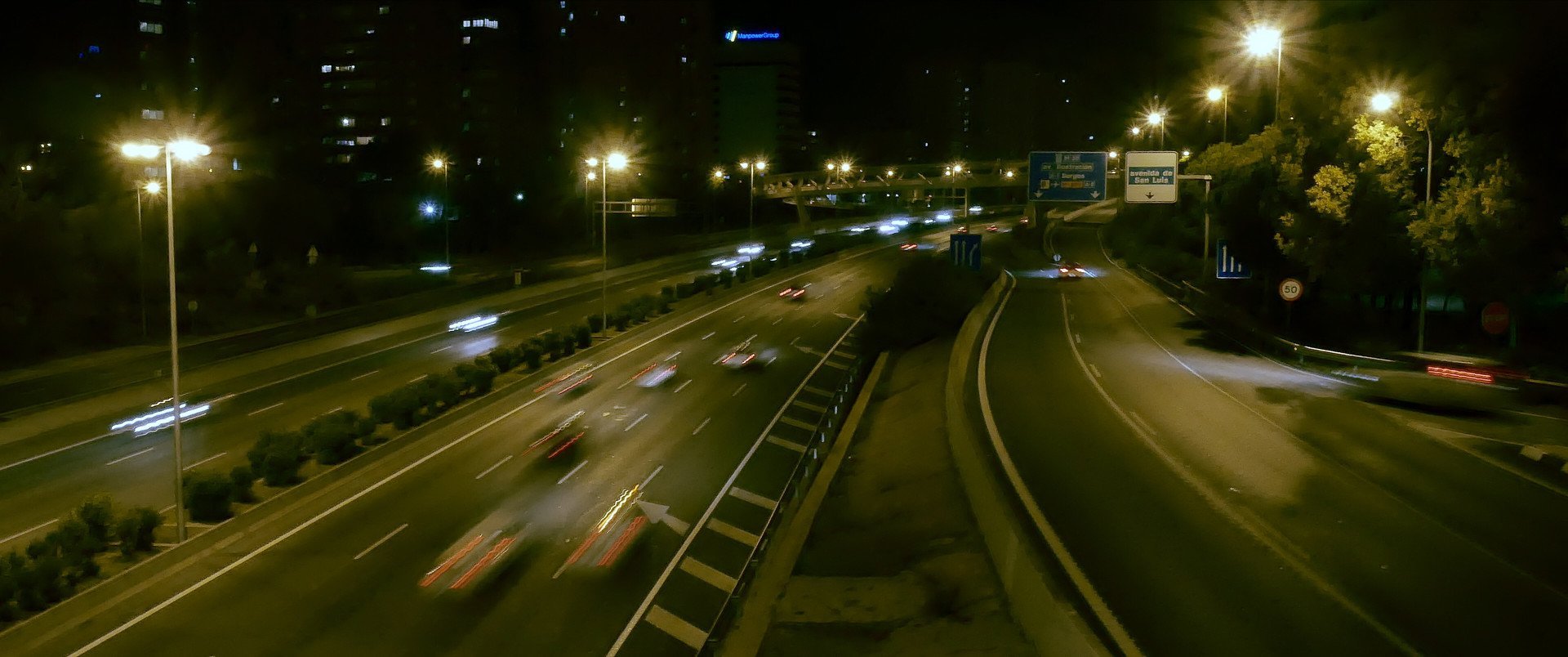
Best Original Music
WINNER (2023)
Cemento
Directed by Senén Fernández, music by José Sanchez-Sanz (Spain)
Interview with Senén Fernández & José Sanchez-Sanz
Cemento is a journey through the city of Madrid, away from the usual spaces that are usually seen in the media. A visual and musical exercise that runs through the city to talk about urbanism and nature, youth and old age, day and night.
IAG: Your film is something of a love letter to the city of Madrid. What inspired it?
SF: I wouldn't say a love letter, more of a love/hate letter. I was born in Madrid and I’ve lived here all my life. At this point of my life, I realize how the city has changed. It seems that politicians are only interested in things like tourism or construction business, and they seem to put all their effort into it, forgetting the people who live here. One of the main ideas of the movie is how difficult is to be "old" in this city. Not only for people but also for buildings, for a certain lifestyle. The old seems to get in the way. I always give this example: Years ago, on an idle afternoon, you could go to the city center to see shops, books, and movies, to have a drink or just walk. Nowadays I don't go downtown if it's not strictly necessary. It's only tourists and construction sites. I miss what this city was once like and, in some way, I’ve tried to reclaim some of those memories.
JS: Everybody that lives in Madrid at the same time hates and loves this city. The actual city council is working to continue the idea that Senén sets in his documentary. He dedicates himself to cutting down trees throughout the city and reforming the squares so that they are large cement spaces. These actions would be absolutely crazy in any other European city. I love this city because I was born in it, but I don’t like the way that all the citizens are been expelled from it because tourism and money are more important than building a community.
IAG: The approach—simply showing static scenes of mundane life, without narration—is a bold creative choice. I'm curious if you were inspired by any other films. Dziga Vertov's classic film from 1929, Man with Movie Camera, comes to mind.
SF: From the moment I started working on the film, it was evident that Koyaanisqatsi was going to be the definitive influence. In fact, when I had to describe the movie, I used to say that it was “Koyaanisqatsi in Madrid”. It was the most obvious influence, but there were other examples of similar films before. Man with a Movie Camera is definitely one of them, along with Berlin: Symphony of Metropolis, which also focuses its action on the daily life of a city. It had an important influence on a narrative level, such as the fact that Cemento takes place, apparently, for 24 hours. About Man with a Movie Camera, yes it is a big influence. I actually have a Blu-ray copy. José prefers the version with music by the Cinematic Orchestra, which was an important reference when he was composing.
JS: The first time I saw Cemento, it reminded me of the City Symphonies that were made at the beginning of the 20th century. It was a challenge for me because I love those films. I even asked my film music students to compose music for parts of the film Man with a Movie Camera (and I was planning to compose a score for that film too). I love the score that the Cinematic Orchestra composed for that film. It was one of my references when creating the score of Cemento. It’s a film that begs for a score. The way that Vertov works with the images is like a video clip without music.
IAG: The musical score is one of the highlights of this film. How did you two decide to work together?
SF: I’ve known Jose for years and I wanted to do something with him. In addition to being friends, we had collaborated on films, in which he was the composer and I was the assistant director. I had never called him to compose music for any of my short films. But I think this was a special occasion, and needed someone of his talent. He is a great musician.
JS: I’ve never had worked with Senén and I was so amazed to been asked for a job like this. I asked him for time to compose the score calmly and he agreed. I enjoyed it so much because I like the idea that he wants to convey with the documentary. And I agree with it
IAG: What was the collaboration like between you two? Senén, did you give him specific parameters? What was the workflow like?
SF: He recommended I listen to Cinematic Orchestra's composition for Man with a Movie Camera. In addition to that, we listened to some music that I had been listening to while I was editing. Two of the most repeated albums were Deep Breakfast and No Blue Thing by Ray Lynch. I listened to them a lot, while editing. But also other composers like Philip Glass, of course, or Nick Cave & Warren Ellis. Music from the second dawn of the movie has a lot from them two, for example. At a work level, I sent the complete editing to José, and he worked on it. Knowing that there were things, in the editing, that could be changed to fit the music, that was actually the case on a couple of occasions. José, furthermore, had just become a father, and he was composing while taking care of his newborn son, so the process took longer. He sent me parts of the music, I added them to the editing, I watched and listened to them and, if necessary, I made some clarifications. It was a fluid and easy process, but as I say, it took time.
JS: Senén showed me some examples of the music he was listening to at the time he was editing the film. I like them so much, and they gave me lots of ideas. I added to them my own references and it was fantastic. I’ve planned a score based on a mix of electronic and acoustic music, using the drums as a ground. Cinematic Orchestra’s score for Man with a Movie Camera is something like that, but there are some moments where I worked with acoustic sound and others where I’ve experimented with electronic environments. It was a work between two people. Senén is the director, but he gave me the freedom to do whatever I liked.
IAG: Are either of you working on another project?
SF: I am working on a documentary about a friend who died a few months ago. I think I needed something to honor his memory and remember him. At first, it was just an idea that stayed there. But the idea of making a documentary about someone normal, not a famous artist, an extraordinary scientist, or a victim of some notable event, began to grow. Someone who lived his life with the cards he had. He was a railway model maker and a great fan of music and cars. A musician and a driver, in fact. The documentary is about that. I think he could have been a great musician too.
JS: Since I don't have any assignments right now, I’m trying to plan my own projects. Lots of things come to my mind. I had to finish my new record as a songwriter, try to make a big project, and take care of my son who was born by the time I was finishing the score for Cemento.
IAG: Last but not least, what are your three favorite films of all time?
SF: When someone asks me that, I think about the movies I liked and enjoyed the most when I was a child. If I have to talk about my favorite movies, are those which, as an adult, you watch again and realize how good they really are, even more so having studied filmmaking. So three of them could be, in no particular order: The Good, the Bad and the Ugly (Sergio Leone), The Executioner (Luis G. Berlanga), and Blade Runner (Ridley Scott). If you asked me tomorrow, I could pick three different ones.
JS: It’s a difficult question for anybody who works in the film industry. Thinking about film music, I love the works that Jonny Greenwood has composed for Paul Thomas Anderson films. The one I like most is There Will Be Blood. I like the music of Alberto Iglesias too, mostly the films that he made with Pedro Almodóvar. I really the score for The Skin I Live In.
